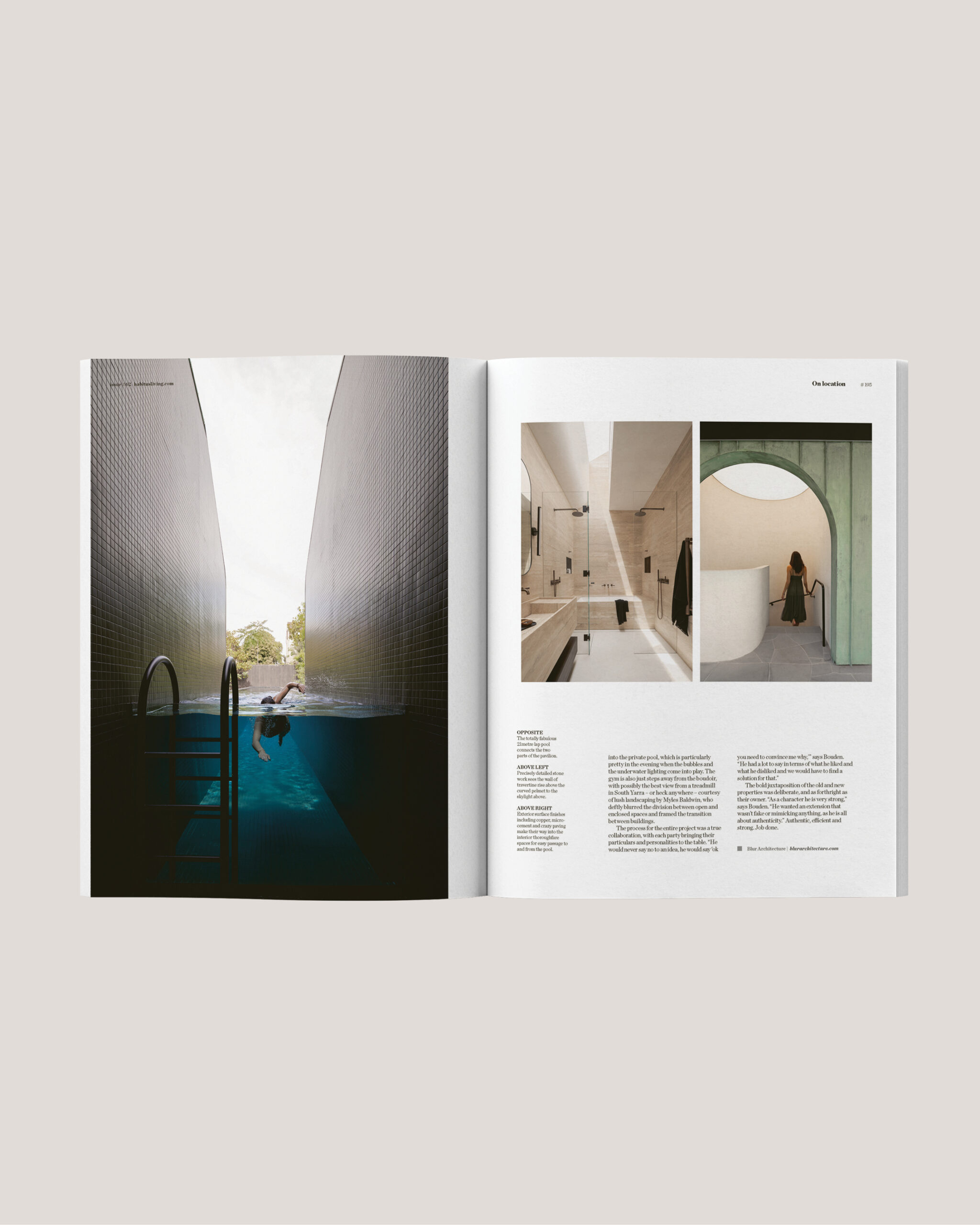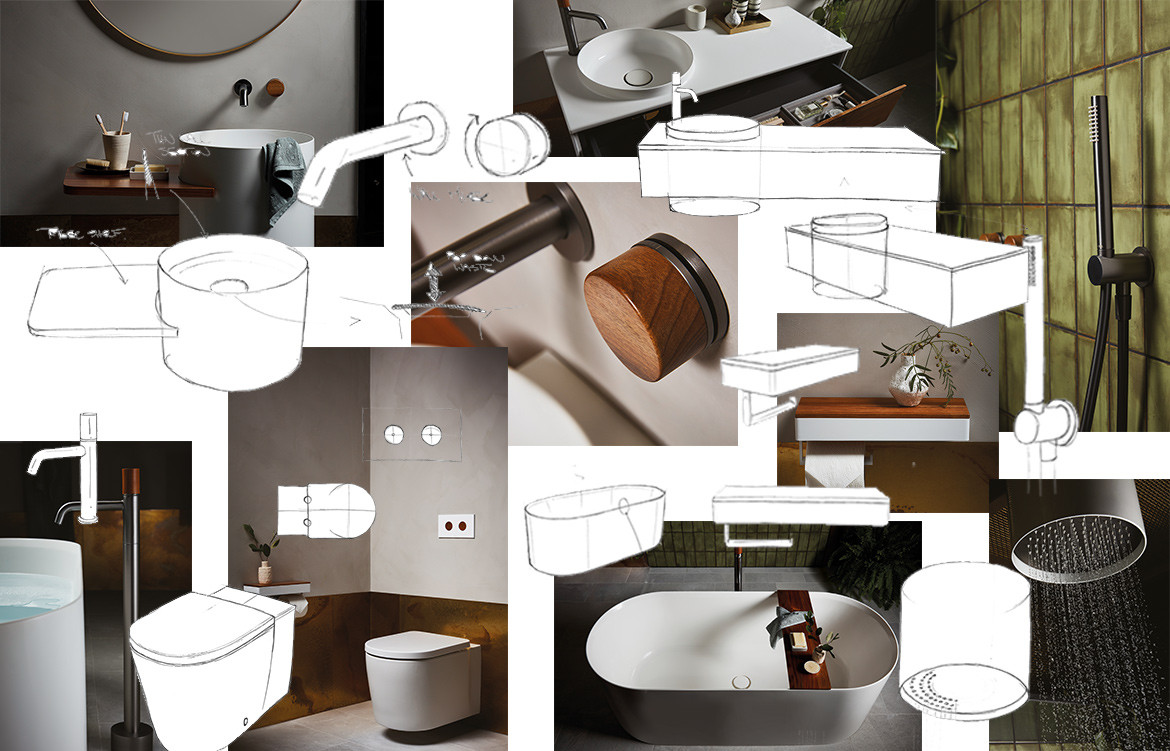The inimitable reality of the world’s cultural and environmental climate highlights the great need of remarkable advancements drive the evolution of the industry towards a more human-centric, sustainable and brighter future. Architects and designers recognise the power and responsibility that they have to, essentially, make the world a better place through the artistry and brilliance of design.
Looking beyond the confinements of functionalism and practicalities, the nature of residential living has gone through an exciting transformation in the last decade. Bathroom spaces offer uninterrupted exclusivity within the home, putting the individual at the forefront of the holistic design. A pioneer of artistic brilliance, Caroma has redefined the art of cleansing and sustainable water innovation since its inception in 1941. Gone are the days where we looked at the bathroom as a simple wet space – it has transformed into an embodiment of a distinct lifestyle,and a means of self-expression. A sheltered haven, the reimagined bathroom space is truly something to celebrate.
With a rich heritage of nearly 80 years, Caroma envisioned a bigger and bolder persona for the bathroom across Australia and beyond. The newest collection to the Caroma name is Elvire – a story of the Artisan and bespoke luxury. Awe-inspiring and revolutionary, the Elvire Collection reintroduces the Caroma brand by inviting the Australian nature into the home with a revitalised, contemporary and timeless soul. Designer Luke Di Michiel explored concepts of biophilia, health and wellness, and sustainability married with influences of the Australian culture and design landscape for this new-age collection.
Recently, we had the utmost pleasure of speaking to him on his inspirations, the creative process and the unique story he wanted to express through Elvire.
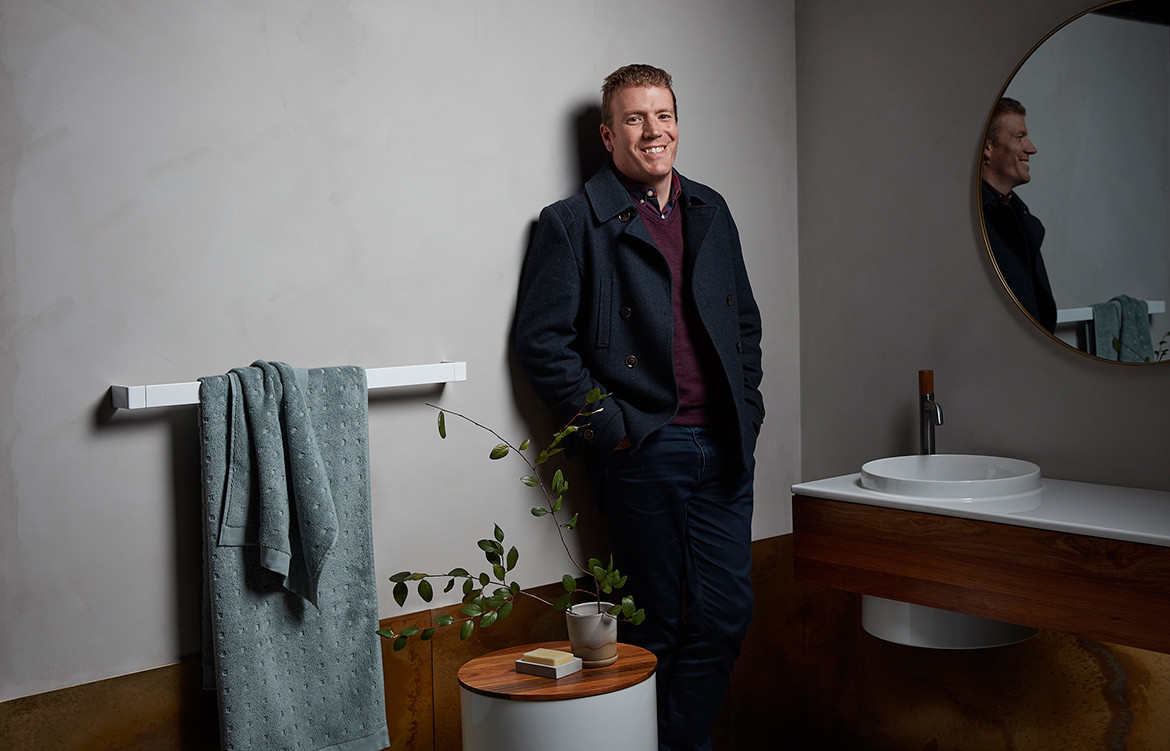
–
Habitusliving: Can you tell us a little bit about yourself, including your history, background and role within the company?
Luke Di Michiel: I completed a Bachelor of Industrial Design in 2003 at the University of Canberra and I was hired as an Industrial Designer at Caroma straight after in 2004. I was so excited to design with a company that had a strong manufacturing heritage and also be able to see the full production process within Australia. To be a part of the Caroma family meant a lot to me – a brand that was making big moves in sustainability and water innovation was monumental at the start of my career as a designer.
Caroma gave me a platform to contribute to society and make an impact. In 2004-2005, the major drought in Australia played a big part in influencing how design could respond to major societal issues. Everyone felt the heavy impact of that time and this approach of using design to solve bigger issues continued throughout my whole career.
Coming straight out of uni and straight into the workforce, did you have any role models that you looked up to and shaped you as the designer that you are today?
Being able to work with brilliant minds such as Dr Steve Cummings, who has been so synonymous to the Caroma brand and Australian design has been such a great foundation for all my roles here. The biggest thing that I’ve taken away from working at Caroma over all these great years is that there are only a few companies where you can really use design to make you feel like you’re making an impact.
When you’re given this opportunity to create change on the problems that the nation faces, you take it and Caroma does that in every product. It’s not just about designing a product that looks good and putting it out there for the sake of it – we have to step back and think, ‘how can this actually help society and the present and future of the design industry?’
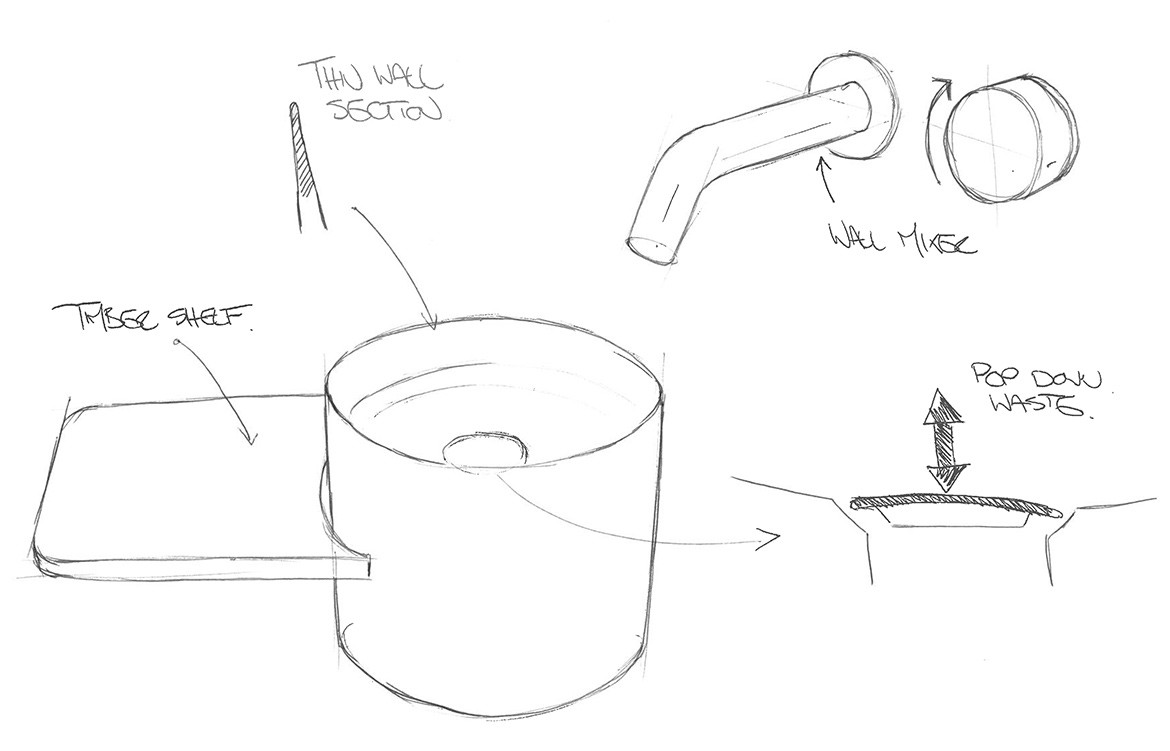
Firstly, congratulations on the recent launch of the new collection: Elvire. It is such a monumental addition to Caroma’s legacy of progressive bathroom design. What was the initial inspiration for the Elvire Collection?
Thank you! We saw it as a great opportunity to reintroduce the brand to the Australian market. Caroma is a well-known name and it was time to celebrate everything that is unique to the company once again. We’re known for designing full bathroom collections with a great heritage of toilets – but we wanted to show that we can do more.
And this was the perfect opportunity to show versatility within the brand once again.
Exactly! We wanted to challenge people’s perceptions on who Caroma is and that we are wholeheartedly committed to progressive Australian design showcasing something distinct and unique in the market today.
Our ability to design complete collections gave us an opportunity to reimagine how some of those elements could work in a new way and it all started with the vanity space. It wasn’t an area we’ve entered before and this made us explore and learn about how this is actually offered in the market. We looked at how everything in every space starts to link and work together – how the design plays into perspective of the bigger story.
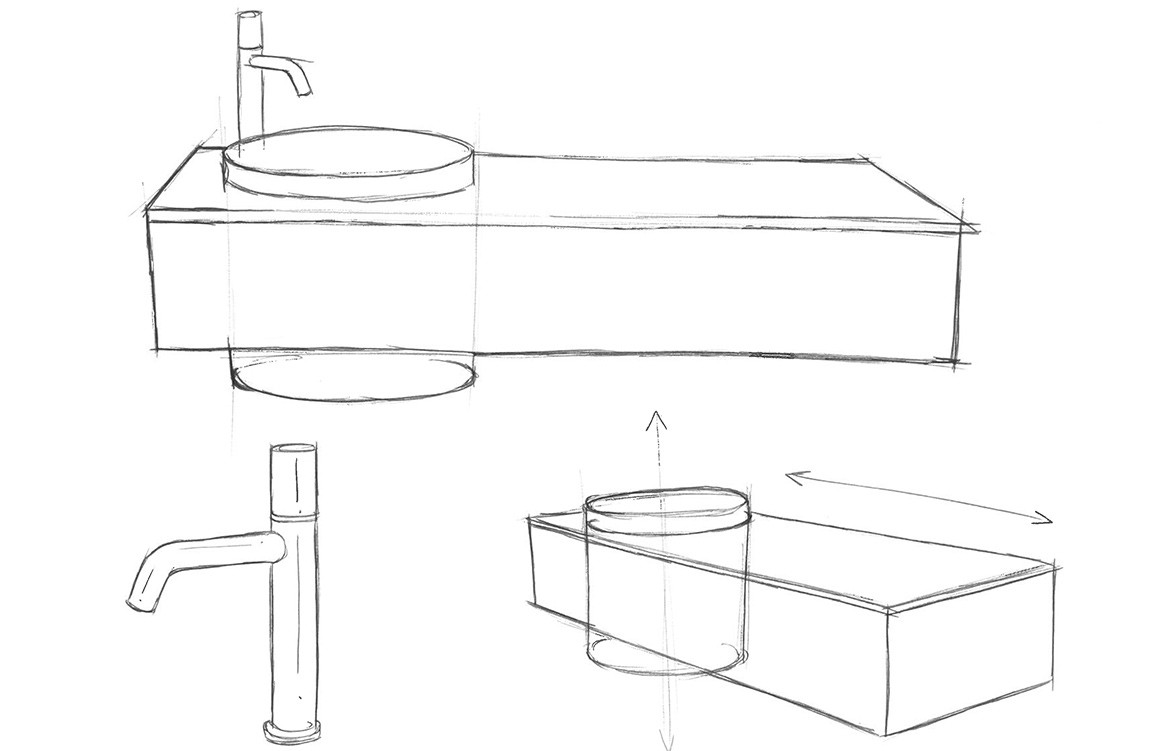
The vanity enabled an exciting conversation as it set a template or a perimeter for all the other elements to work around. It meant that every other product we design needs to work with this one vanity and it needs to fit within the bigger puzzle. We created a simple form that celebrates the materials in a classic and timeless way with longevity in mind.
So with this we thought, well, where can this go? How do we continue this conversation?
And what’s the benefit of presenting a whole collection to the user as opposed to a ‘mix and match’ option? Do you see it as a helpful solution for the design process?
As a designer, you have to think of the consumer and think of their journey and well, designing a bathroom is a hard process and undertaking for anyone. You have the ability to put the ease and comfort of the user at the forefront with a refined and resolved collection, but still letting them have the ability to personalise the process as well. You’re empowering them with their own choice of finishes and colour options, interweaving a big element of involvement but with a helping hand. And that’s what the Elvire Collection does.
That’s a good way to think about it – letting the design empower the consumer.
Precisely. It’s what good design is meant to do.
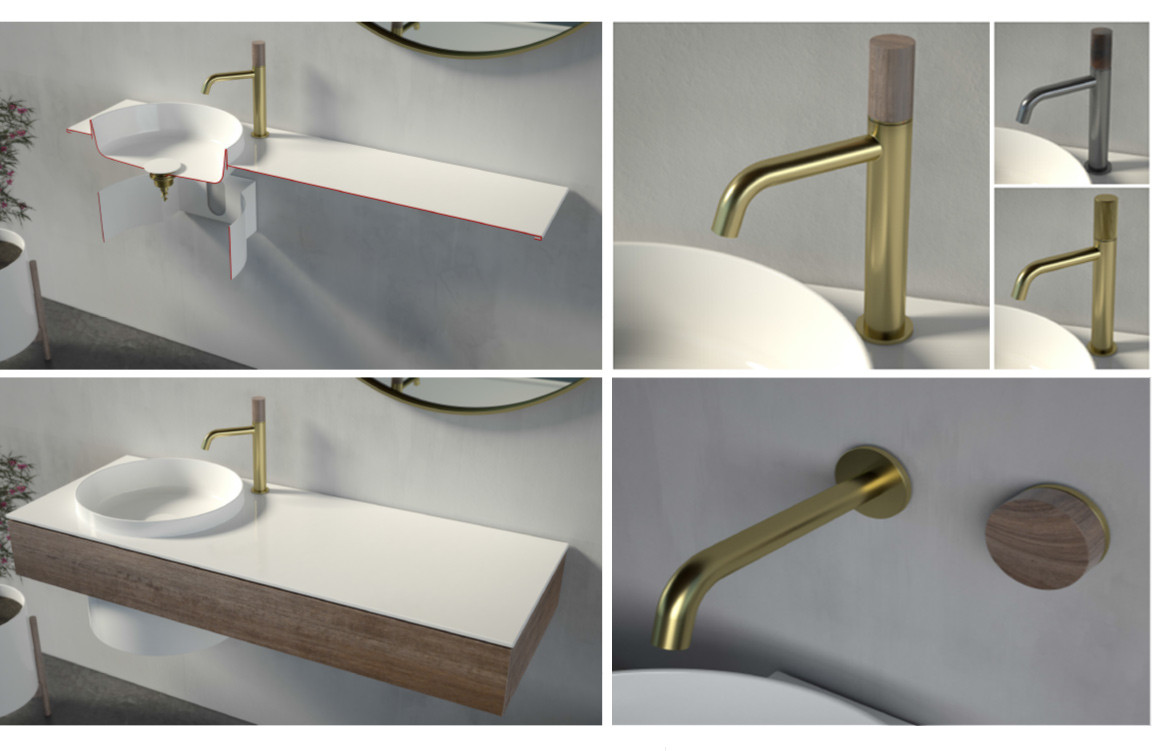
As you mentioned, the development of Elvire started from a simple conversation. So, walk us through the creative process – how did it begin and how did it develop? Were there any challenges throughout it?
A big challenge was the materiality. Traditionally we create our products with Vitreous China and looking at how we wanted to present the core of Elvire in the vanity, we found that this material wasn’t suited for the new form and shape of the collection at that scale. We explored enamelled steel and it pushed us in new directions. The knowledge and application was all there so we just had to take it and put it in a new story.
Strength within Caroma is our ability to offer complete collections. With Elvire, the challenge was to see how we could develop and design a full collection. Each product goes on its own journey and has its own associated challenges.
I looked at it like Jenga – everything relied on each other and the range was only going to be strong from its overall cohesive nature. And if you pull each individual item from the collection, yes it’s visually strong and interesting. But once you pair that with everything else, it just continues to gain strength and a story when all the elements come together.
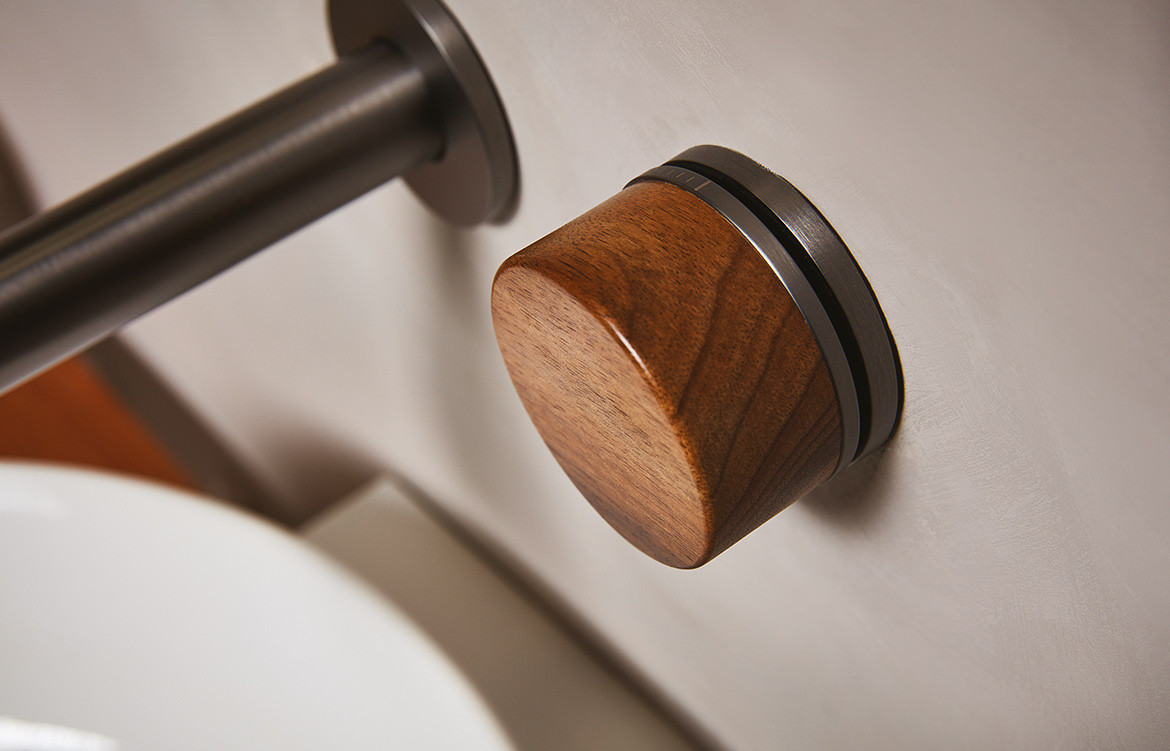
Materiality played a big role in setting this collection apart from the others – adding a touch of nature and a new level of elegance. What was the story that you wanted to tell through that materiality, form and colour?
I was always interested in bringing this element of timber into the design. The thinking behind that stemmed from wanting to introduce a bespoke quality and an idea that every piece was going to be unique. Timber was a great medium as every piece was going to have a different grain, a slightly different colour and tactility to make it personal to you. We’re delivering a mass produced product and the availability of having something that is exceptionally unique and different to the next person was a nice starting point to the materiality story for me.
I also wanted to embrace the Australian connection to the outdoors.
A big aspect in this country’s lifestyle.
When you’re in a country like this, it has to be! Simple, classic styles of materiality and colour speak to a sense of individuality that Caroma beholds – an exquisite beauty that people won’t easily get bored of.
I find that the bathroom is an extension of the lifestyle within the home, but offering a sense of exclusivity separated from the other areas. And with the references to nature with the new materials – it becomes a sanctuary or a bespoke retreat. What made this material story so different?
I saw a new story that was all based on how these materials worked together. We created something honest, tactile and uniquely Australian. Stepping away from form and function, the timber creates a bigger, stronger focal point and it was beautiful to have this natural material defining our new direction. It’s ultimately the star of the show. The details that it brings – you can’t deny the inherent beauty of it. It created a tactile aspect to the collection and that was a big turning point for us – we wanted the wood to invite touch and interaction throughout.
By introducing new materials and reimagining old ones, we played up to the strength of the whole design aesthetic unique to Elvire. The form is timeless with a design longevity that plays a big role in the conversation of sustainability.
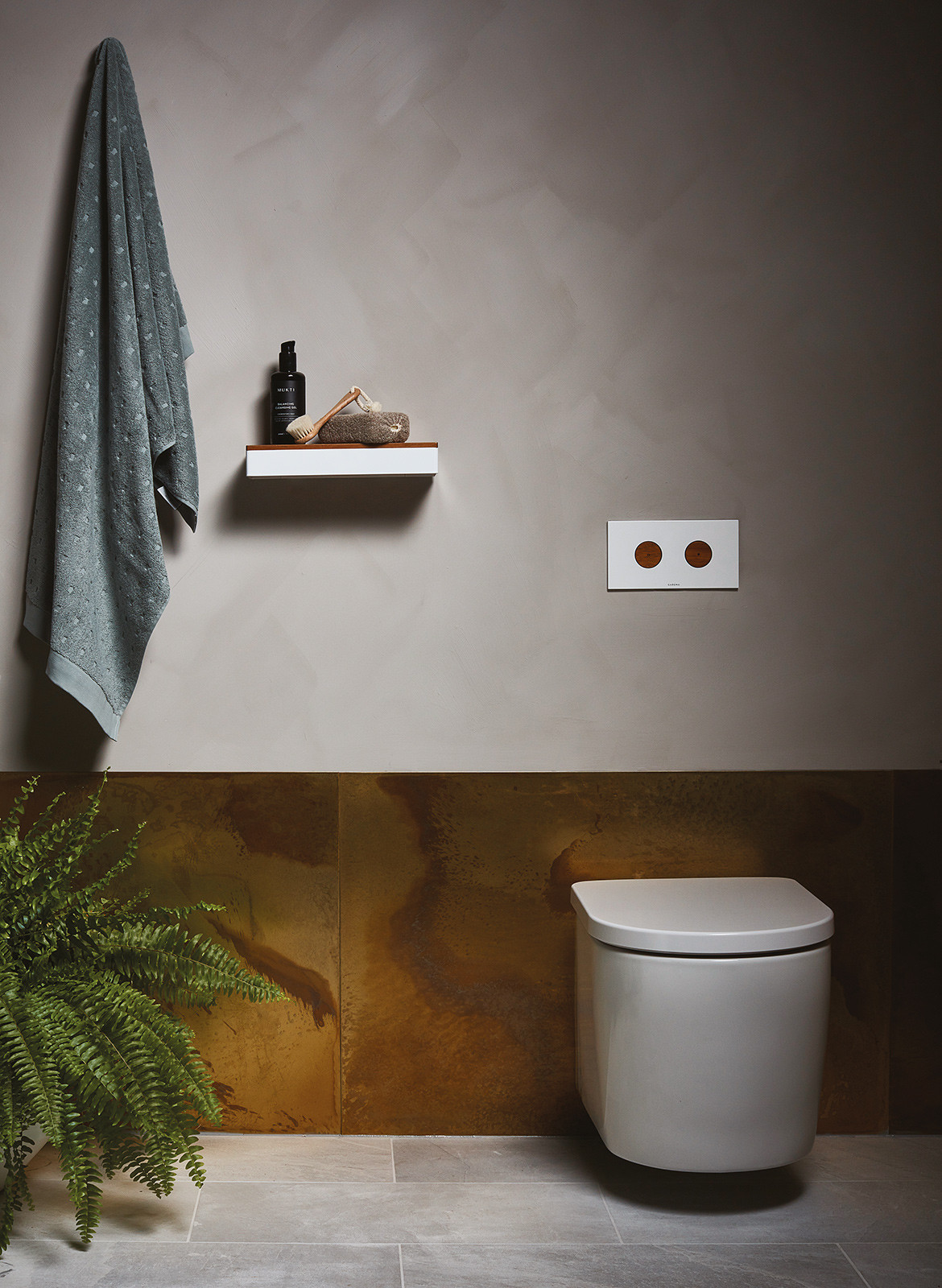
Staying on this topic of sustainability and design longevity, how does Elvire reflect on where design and sustainability are in the 21st century? And how has Caroma captured a new essence or phase of that bigger conversation?
Sustainability was omnipresent throughout all my roles. When I started in the beginning, bigger industry questions started to open up and it quickly pointed out that what we were doing at Caroma was more than just simple product design. This whole idea of sustainability is not something that’s ever been new to us. It’s been in the Caroma DNA from day one – where design and sustainability are intrinsically linked together.
People are exceedingly more aware of the state of the climate and our need to be sustainable. It almost definitely needs to be front and centre of any product nowadays.
The consumer expectation is always front and centre, where people are looking at a product and consciously thinking about its impact on society. People are far more educated on how a product is made and people hold a strong value in its sustainability. The designer has a responsibility to consider that and be sustainably conscious from the beginning of the process.
Does Elvire sort of act as a refresh button for Caroma’s sustainability practices?
Most definitely, it was an opportunity to bring in another element for the sustainability conversation. The ability to launch a collection like this with water efficient products is almost expected from Caroma and it’s normal. But, that choice of introducing the new material was important in showing that we’ve treated it with the same level of intention with every other product. By using timbers that are sustainably sourced from Tasmanian forests, we can present a beautiful piece of natural material – a living, breathing element from Australia and we’ve given it the care and attention that it deserves.
We’ve been bold with what we want to show and we’re confident in what it represents. It’s a collection that invites and deserves respect to a piece of material that is unique to our land.
That puts an emotional value to the collection – creating a unique connection between landscape and the customer. Did you envision this bigger relationship between consumer and product from the beginning?
Very much so. I feel as though successful design has the power to provoke feeling and emotion from the end user, whatever it may be. Elvire creates a connection with the Australian landscape and that is very important to approach that from a design and sustainability aspect. As a business, we visited all options from laminate to cheaper American timber options – but there’s nothing quite like Australian timber and having that identity to the range. It gives it a special charm that is undeniably Caroma.
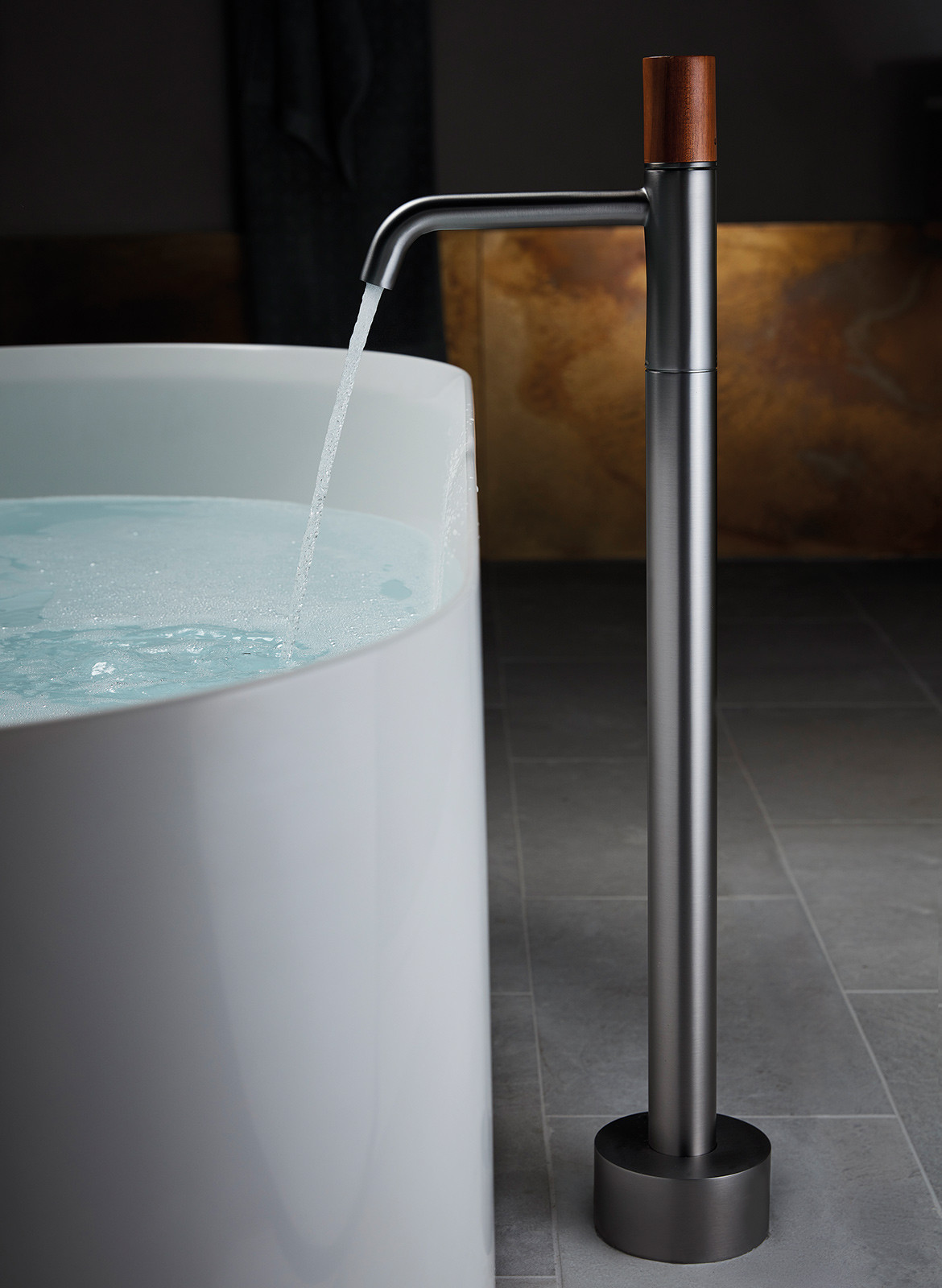
It sounds as though the partnerships along the way have been the driving force in the success of this collection. I suppose it would have been difficult to create on its own, especially with the introduction of new materials and processes. How have the collaborative relationships influenced the collection and your design philosophy?
The collaboration for this range was critical. The vanity space and the use of timber weren’t areas we were overly familiar with so the opportunities to partner with Australian manufacturers early on was vital in bringing this collection to life. Bringing in people like Port Stephens Joinery and Evostyle in from the start was important in creating early concepts and a cohesive story that showed them what we wanted to do. To have that collaborative journey from the beginning made us all say, “Yes, we want to work with you.” This was a partnership that had to be valued – everyone had different levels and aspects of expertise that we could bring to the table and join together to make something great.
Were there any disagreements along the way or challenges that you had to overcome?
Oh, the work was hard! But disagreements, no, we all valued and believed in the same things and I’m extremely grateful to have that supportive energy in the process. Elvire was built upon Australian design being engineered by Australian companies – pushing us to start an interesting discussion, fully committed to seeing where it was headed and it’s position in the market. We were all able to push each other from the beginning. It was a challenge to create a vanity design that was visually light with a thin edge and we just simply didn’t know how to engineer that on our own. However, by knowing and fully understanding what we wanted from the start made them determined to help achieve that dream.
The energy and enthusiasm from supply partners was infectious and inspiring.
Elvire seems like a celebration of Australian design itself – a representation of the heart and soul of Australian creativity in this wild, progressive world.
It’s something we’re extremely proud to be a part of. Every partner was excited to have the opportunity to be a part of something different and something bigger. Everything that represents Caroma also represents all the companies that we worked with and our shared ethos across the Australian manufacturers and designers. Everyone brought strengths that we could all develop together built on one strong and shared vision.
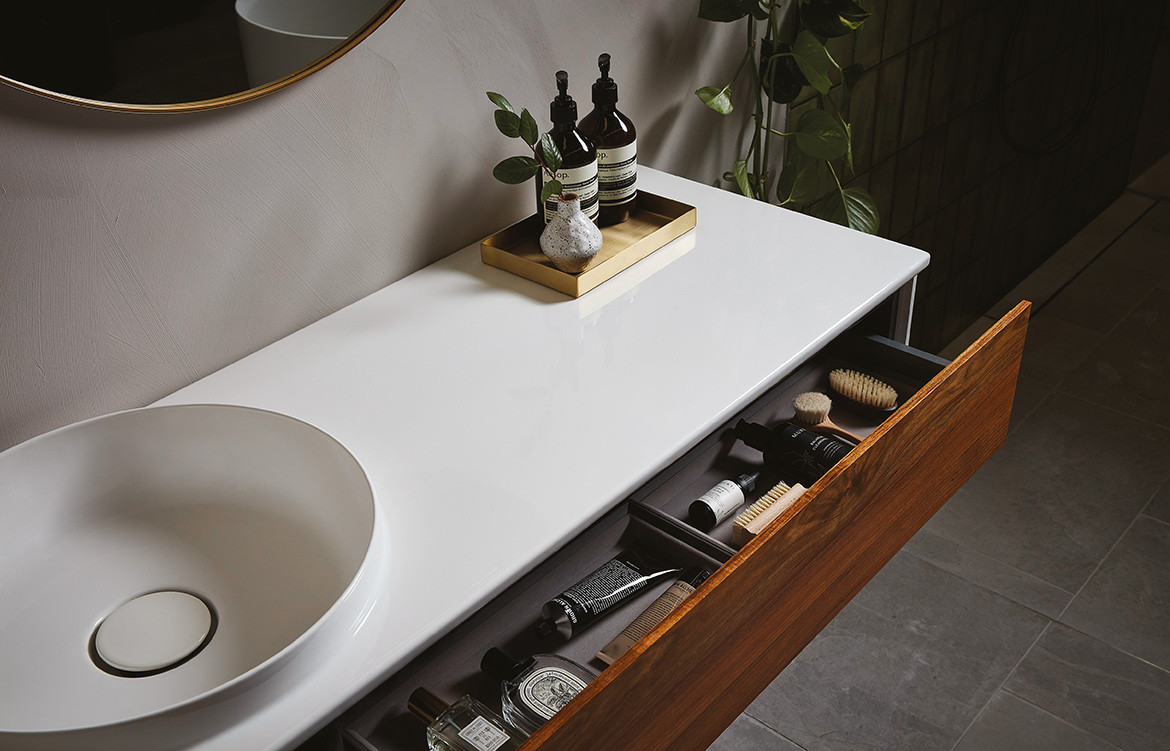
Now the big question is: what does the Elvire Collection mean to you, Luke?
Well. Ultimately, to me, Elvire is a product of partnership and a continuous journey and story based on principles that we’ve built together. It captures the greatness of collaboration in Australia – how fortunate, transparent and willing we are to collaborate in support of everyone designing for the present and future generations. With that, something unique can be developed. We couldn’t have done this without help from others. The collaboration really created this energy that ultimately helped everyone.
At times, it was hard and we didn’t know where to go – but we could be encouraged by the hard work of what others were doing and their belief in it. No one ever thought that it was too hard. The collective motivation made everyone stick with it and push through it.
Two years is a long time to develop a collection, and there were times where you lose a bit of momentum but we kept encouraging each other to just keep working through the challenges to the end. From those first conceptions, whoever we touched based with look at the range and said, ‘this is something different and we want to be a part of it.’ It kept pushing me and it kept pushing everyone.
Would you say this is a big highlight of your career?
As a designer, it was an important milestone for me.
It pushed me into new areas and challenged what I’ve been doing for awhile. I wanted to create something that maintained and celebrated the high standards that Caroma is known for and achieve that on a bigger stage. It was a continuous story of motivation, encouragement and belief that really paved the way for the Elvire collection.
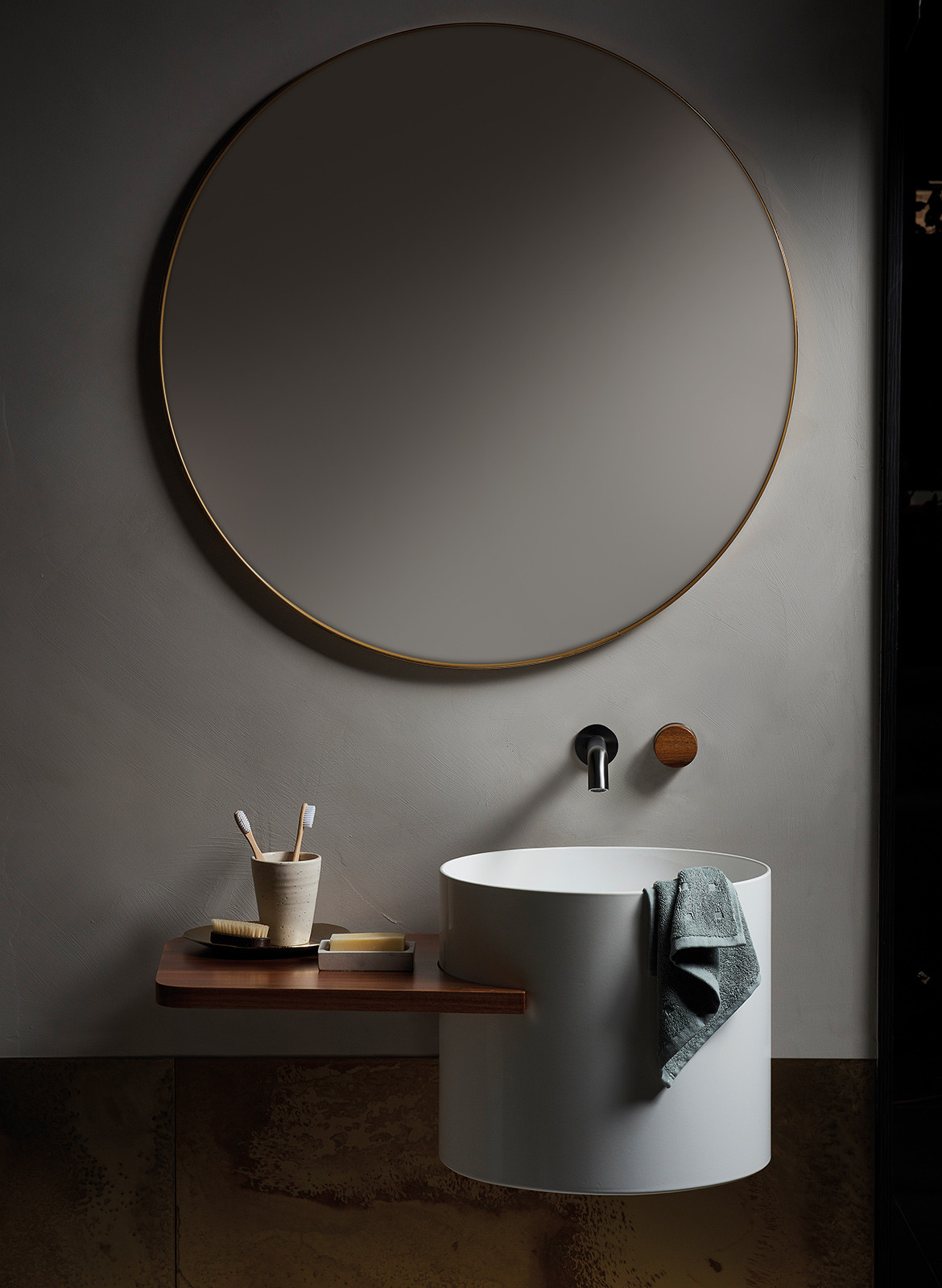
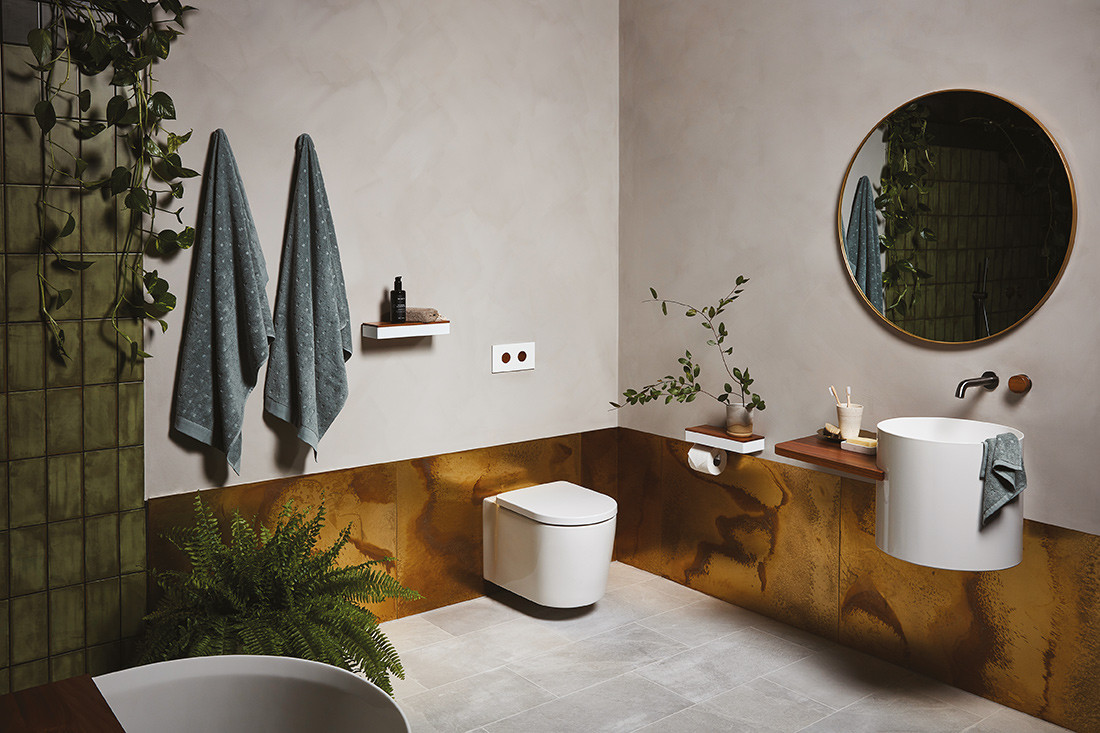
Caroma
caroma.com.au
We think you might also like to see more of the Elvire Collection.
